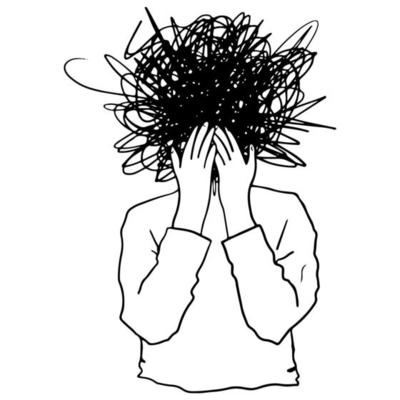
anti anxiety supplements
Share
anti anxiety supplements
anti anxiety supplements - Navigating the modern world can feel like a constant battle against stress and anxiety. While therapy, lifestyle changes, and medication are often the cornerstones of anxiety management, many people are also exploring the world of anti-anxiety supplements. But what are these supplements, how do they work, and are they really effective?
This blog post will delve into the science behind some of the most popular anti-anxiety supplements, providing you with a research-backed overview to help you make informed decisions about your health.
anti anxiety supplements - The Role of Supplements in Anxiety Management
First and foremost, it's crucial to understand that supplements are not a "cure" for anxiety. They can, however, be a supportive tool to help manage symptoms, often by influencing key brain functions and chemical messengers. Many of these supplements work by impacting neurotransmitters like serotonin and GABA, which are known for their roles in regulating mood and promoting a sense of calm.
It is always important to consult with a healthcare professional before starting any new supplement, especially if you are currently taking other medications. Supplements can have side effects and may interact with other drugs.
anti anxiety supplements - Research-Backed Anti-Anxiety Supplements
anti anxiety supplements, Here are some of the most-studied supplements for anxiety, along with what the research says about their effectiveness:
-
Magnesium: This essential mineral plays a vital role in the body's stress response. Studies have linked magnesium deficiency to anxiety-related conditions. Research suggests that magnesium supplements, particularly magnesium glycinate, may be effective in easing mild anxiety, especially in individuals with low magnesium levels.
-
L-Theanine: An amino acid found in green tea, L-theanine has been shown to promote relaxation and reduce stress. It works by increasing the production of certain neurotransmitters and altering brain waves. A growing body of research suggests that L-theanine can be an effective tool for combating anxiety, though its impact is generally milder than that of a major psychoactive drug.
-
Ashwagandha: As an "adaptogen," this herb is believed to help the body resist and adapt to stress. Ashwagandha has been a staple in traditional Ayurvedic medicine for centuries. Studies have shown that it may help lower stress and anxiety levels by reducing the stress hormone cortisol.
-
Omega-3 Fatty Acids: Best known for their benefits for heart and brain health, omega-3s—specifically the eicosapentaenoic acid (EPA) component—may also help reduce anxiety. Some research suggests that daily doses of at least 2,000 mg of omega-3s can help reduce anxiety symptoms, with a stronger effect for those with clinical anxiety disorders.
-
B Vitamins: A number of B vitamins, including B6 and B12, are thought to play a role in anxiety management. Vitamin B6 helps regulate neurotransmitters like serotonin and GABA, while vitamin B12 is essential for nervous system function. Deficiencies in these vitamins have been linked to higher levels of anxiety and depression.
-
Chamomile: Often consumed as a tea, chamomile is known for its calming properties. Research suggests that short-term use of chamomile may be effective in lessening anxiety symptoms, especially in individuals with generalized anxiety disorder (GAD).
A Word of Caution: What You Need to Know
anti anxiety supplements, While many of these supplements are generally considered safe for short-term use, it's important to be aware of potential side effects and risks.
-
Interactions with Medications: Some supplements, such as St. John's wort, can have dangerous interactions with prescription medications, including SSRIs (selective serotonin reuptake inhibitors), leading to a potentially life-threatening condition called serotonin syndrome. Others, like chamomile, can increase the risk of bleeding when used with blood thinners.
-
Dosage and Quality: Supplements are not regulated by the FDA in the same way as prescription drugs. This means there can be significant variation in product quality, purity, and dosage. Look for reputable brands that have been third-party tested.
-
Individual Responses: What works for one person may not work for another. The effectiveness of supplements can depend on a variety of factors, including individual biochemistry, the specific type of anxiety, and the presence of any underlying deficiencies.
-
Side Effects: Even natural supplements can have side effects, such as drowsiness, digestive issues, or allergic reactions. Always start with a low dose and monitor your body's response.
The Bigger Picture
Supplements can be a helpful piece of the puzzle, but they are not a replacement for a comprehensive approach to mental health. Combining supplements with other proven strategies, such as therapy, regular exercise, a balanced diet, and stress-reduction techniques like mindfulness and meditation, will likely lead to the best results.
If you are struggling with anxiety, talk to a doctor or a mental health professional to create a personalized plan that is safe and effective for you.
Magic Mushroom Delivery - Mushroom Delivery Victoria & Vancouver
